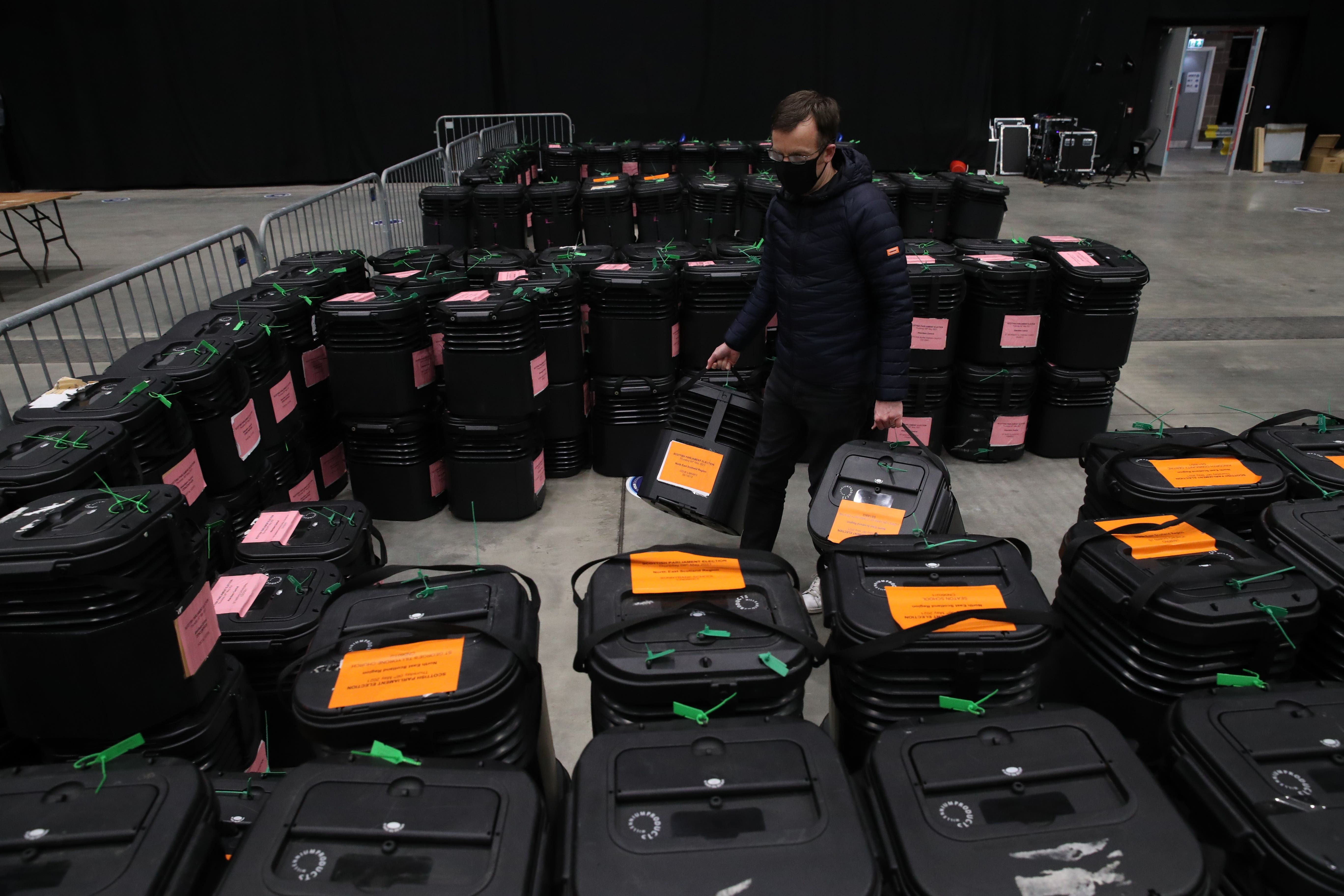Neighbours could vouch for people without ID at elections, senior Tory suggests
MPs discussed the Government’s plan to introduce voter ID requirements at the next general election.

Your support helps us to tell the story
From reproductive rights to climate change to Big Tech, The Independent is on the ground when the story is developing. Whether it's investigating the financials of Elon Musk's pro-Trump PAC or producing our latest documentary, 'The A Word', which shines a light on the American women fighting for reproductive rights, we know how important it is to parse out the facts from the messaging.
At such a critical moment in US history, we need reporters on the ground. Your donation allows us to keep sending journalists to speak to both sides of the story.
The Independent is trusted by Americans across the entire political spectrum. And unlike many other quality news outlets, we choose not to lock Americans out of our reporting and analysis with paywalls. We believe quality journalism should be available to everyone, paid for by those who can afford it.
Your support makes all the difference.Ministers should consider allowing neighbours and those from the same household to vouch for people who arrive at polling stations without voter ID, the Commons has heard.
Father of the House Sir Peter Bottomley, a Conservative, said the idea was worth considering, and similarly suggested “people with some kind of standing in society” could attest to the identity of someone seeking to vote but who does not have the correct ID on the day.
Labour also asked if the Government would consider a vouching system, which was recommended by the Electoral Commission.
Ministers were urged to consider the idea in the Commons as MPs discussed the Government’s plan to introduce voter ID requirements at the next general election.
During the debate, a minister also dismissed suggestions that voter ID would have a disproportionately negative impact on ethnic minorities, saying ethnic minority voters are “most disenfranchised and disadvantaged by not having security in our elections”.
It comes as election staff warned there could be “serious disruption” at the next general election if the policy is rolled out nationally, as is currently planned.
And the elections watchdog has urged the Government to expand accessibility after voter ID rules prevented some from participating in May’s local elections in England.
One recommendation from the Electoral Commission was that the Government “should enable registered voters who do have accepted ID to make an attestation at their polling station on behalf of someone who does not have any form of accepted ID”.
Sir Peter told the Commons: “Can I suggest that we ought to consider the suggestion of attestation where someone in a household who doesn’t have photo ID can have their identity attested by the person who does in the same household, and that perhaps neighbours ought to be able to do that and other people with some kind of standing in society might be able to do the same thing with people who find that they can’t vote on the day.”
Labour shadow Cabinet Office minister Florence Eshalomi said: “The minister claims that she is concerned with protecting our democracy, so will she agree (with) the entirely reasonable Electoral Commission reforms and its widening the list of the voter ID that people can use to vote, or will she commit to introducing a vouching rule for those without voter ID?”
Ms Eshalomi said the Government’s changes to the system had “failed”, adding: “The Conservatives have snatched the ability of legitimate voters to have their say.”
She asked: “Is the minister concerned by the watchdog’s findings that these laws could have a disproportionate impact on people from minority ethnic backgrounds?”
Liberal Democrat MP Wendy Chamberlain (North East Fife) said: “We are teetering on the cliff edge of a democratic travesty.”
Communities minister Rachel Maclean said “the vast majority of electors, 99.75%, were able to cast their vote successfully and adapted well to the rollout of the changes” when voter ID requirements were in place for the local elections in England in May.
She said a report evaluating the implementation would be published in November, adding: “We are determined to ensure we fully understand how the policy has operated in practice, what has gone well, and where there are any ideas for improvement in the future.”
The minister insisted that prior to the changes there was a “staggering vulnerability in our electoral system”, saying it was previously “far too easy to commit the crime of electoral fraud” and “almost impossible to detect it”.
And addressing concerns from Labour, she said: “What we know from past examples of this type of heinous behaviour, such as we’ve seen in Tower Hamlets and Birmingham, it is those ethnic minority voters themselves who are most disenfranchised and disadvantaged by not having security in our elections.”
Ms Maclean accused the Lib Dems of making “scaremongering comments”, saying such rhetoric is “damaging the very important cause that we all stand behind, which is ensuring the safety of our democracy… which now more than at any other time could potentially be at risk”.